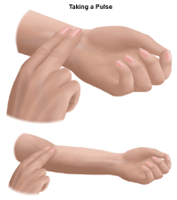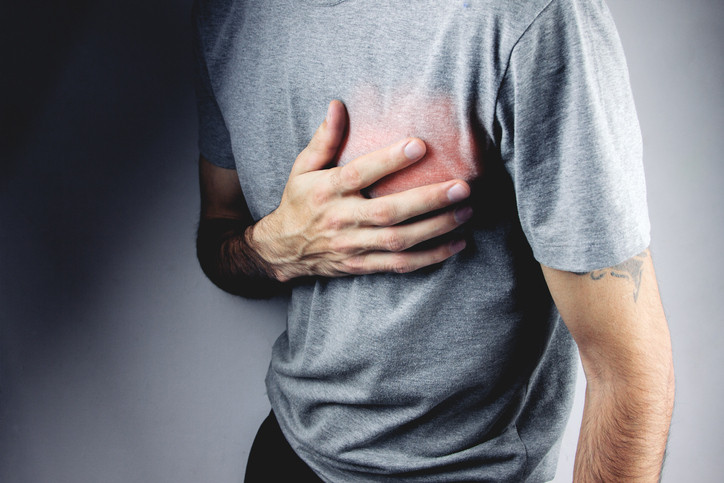What is a range normal pulse rate in Human? range for pulse rate high causes may fluctuate and increase with exercise, illness, injury
What is the Pulse rate?
The pulse rate is a measurement of the heart rate, or the number of times the heart beats per minute. What is a range normal pulse rate in Human? pulse rate high causes may fluctuate and increase with exercise, illness, injury as the heart pushes blood through the arteries, the arteries expand and contract with the flow of the blood. Taking a pulse not only measures the heart rate, but also can indicate the following:
- Heart rhythm
- Strength of the pulse
The normal pulse for healthy adults ranges from 60 to 100 beats per minute. Pulse rate of human rate may fluctuate and increase with exercise, illness, injury, and emotions. Females ages 12 and older, in general, tend to have faster heart rates than do males. Athletes, such as runners, who do a lot of cardiovascular conditioning, may have heart rates near 40 beats per minute and experience no problems.

How to check your pulse
As the heart forces blood through the arteries, you feel the beats by firmly pressing on the arteries, which are located close to the surface of the skin at certain points of the body. The pulse can be found on the side of the neck, on the inside of the elbow, or at the wrist. For most people, it is easiest to take the pulse at the wrist. If you use the lower neck, be sure not to press too hard, and never press on the pulses on both sides of the lower neck at the same time to prevent blocking blood flow to the brain. When taking your pulse:
- Using the first and second fingertips, press firmly but gently on the arteries until you feel a pulse.
- Begin counting the pulse when the clock’s second hand is on the 12.
- Count your pulse for 60 seconds (or for 15 seconds and then multiply by four to calculate beats per minute).
- When counting, do not watch the clock continuously, but concentrate on the beats of the pulse.
- If unsure about your results, ask another person to count for you.
If your doctor has ordered you to check your own pulse and you are having difficulty finding it, consult your doctor or nurse for additional instruction.
- Place the tips of your index, second and third fingers on the palm side of your other wrist below the base of the thumb. Or, place the tips of your index and second fingers on your lower neck on either side of your windpipe.
- Press lightly with your fingers until you feel the blood pulsing beneath your fingers. You may need to move your fingers around slightly up or down until you feel the pulsing.
- Use a watch with a second hand or look at a clock with a second hand.
- Count the beats you feel for 10 seconds. Multiply this number by six to get your heart rate (pulse) per minute.
Count your pulse: _____ beats in 10 seconds x 6 = _____ beats/minute
What is a Normal pulse?
Normal heart rates at rest:
- Children (ages 6 – 15) 70 – 100 beats per minute
- Adults (age 18 and over) 60 – 100 beats per minute
What is a normal pulse rate?
Your pulse rate, also known as your heart rate, is the number of times your heart beats per minute. A normal resting heart rate should be between 60 to 100 beats per minute, but it can vary from minute to minute.
Your age and general health can also affect your pulse rate, so it’s important to remember that a ‘normal’ pulse can vary from person to person.
What is a fast pulse rate?
If your heart rate is over 100 beats per minute when you are at rest, this is considered fast.
A rapid heart rate, also known as tachycardia, can be related to many different health conditions. It’s normal for your heart rate to increase when you’re exercising or if your body is fighting off an infection.
If you have noticed a sudden increase in your heart rate and are also feeling dizzy, faint or having palpitations (a feeling of being aware of your heartbeat, or that your heart is pounding or beating irregularly), you should speak with your GP.
What is a slow pulse rate?
A heart rate below 60 beats per minute when you are at rest is considered slow (bradycardia).
A slower heart rate can be normal for some people, including athletes, fit and healthy young adults, or those taking medications like beta-blockers. For example, it is common for someone who exercises a lot to have a resting heart rate of 60 beats per minute or less.
However, if a slow heart rate is not normal for you, especially if you feel unwell with it, this could indicate a problem with your heart. If you notice your heart rate is slower than usual, and you are feeling faint, fatigued or dizzy, you should talk to your GP.
Also Read : 9 Best Wet Grinders With Price in India 2020
What can cause pulse rate to change?
As well as exercise, there are many other reasons why your heart rate may suddenly change. pulse rate high causes Some common reasons include illness or fever, dehydration, anxiety, medications, as well as other health conditions.
Dehydration
When you are dehydrated, the volume of your blood decreases and your heart needs to work harder to pump blood around your body. You may notice a faster heart rate and palpitations (a feeling of being aware of your heartbeat, or that your heart is pounding or beating irregularly).
Staying hydrated is an important way to regulate your heart rate and has many other health benefits. Women should aim to drink 6-8 glasses of water per day (or 1.6 litres), and men 8-10 glasses (or 2 litres).
Infection or fever (including Covid-19)
It’s common for your pulse rate to increase in response to an infection or fever. This happens as your heart pumps harder to deliver oxygen and immune cells around your body, helping to fight the infection. Viral infections such as the flu or Covid-19 may cause your heart rate to increase.
- Learn more about how Covid-19 affects your heart.
Also Read: Best Funny Math Jokes and Math Puns for Kids
Medication
Some medications can also cause changes to your heart rate. For example, certain asthma medications can cause your heart rate to speed up. While heart medications (like beta blockers) can make your heart rate slow down.
If you notice sudden changes to your pulse rate after starting a new medication. And you are not feeling well, it’s best to speak to your GP.
Heart conditions
In some cases, an abnormal heart rhythm (arrhythmia) can be caused by a problem with your heart’s electrical conduction system. This can cause your heart to beat more slowly, quickly, or in an irregular way. Some arrhythmias are more serious than others, and some may be related to more serious heart conditions.
- Learn more about heart conditions that can cause arrhythmias!
Other health conditions
There are many other conditions, which aren’t heart or circulatory diseases. Range for pulse rate of human Which can cause changes to your heart rate – pulse rate high causes including infection, anemia, or disease of the thyroid gland.






